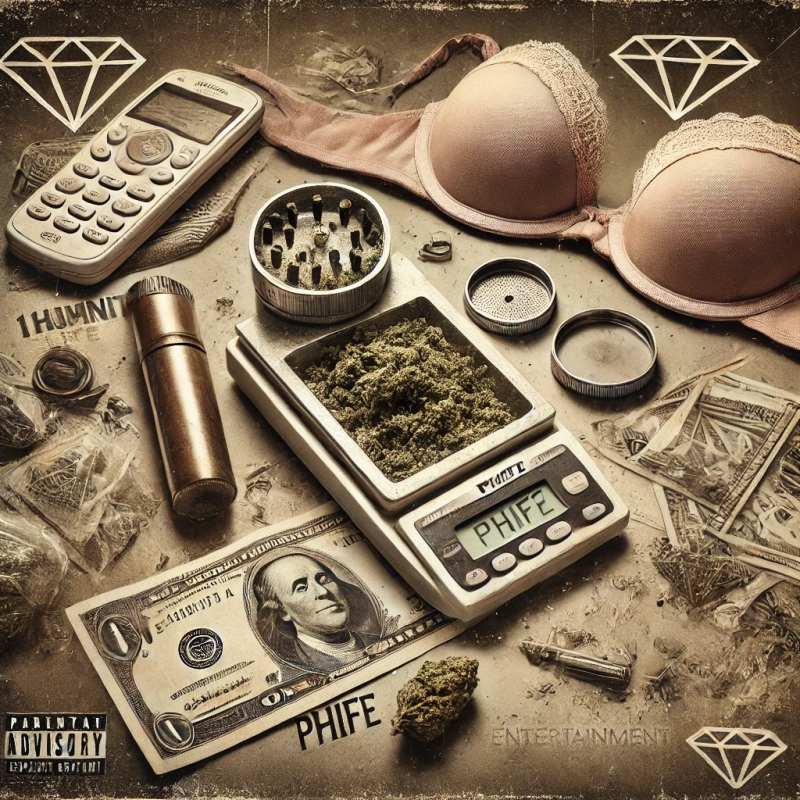
Before he ever stepped in a studio, King Phife was being shaped by the music playing in the background of his childhood. His mother’s record player spun Al Green, Parliament, and Curtis Mayfield, while his older sister fed him bootleg CDs of Lil Wayne at his most unruly. The result? An artist with one foot in the velvet soul of the ’70s and the other in the hard-stunting legacy of Cash Money Records. “I sound like money,” Phife says with a sly grin—not a brag, but a nod to the polish, hunger, and grit that define his sound.
But that sound wasn’t enough to pay the bills at first. His early releases—five songs uploaded in a haze of hope—netted a modest $30. “It was enough to prove the math could work if I kept stacking,” he says. That’s where Phife set himself apart: by refusing to treat music like a dream. He approached it like inventory. Streams, publishing splits, content cycles—every part of the game mattered. “Goods and services,” he explains. “You don’t just build a fanbase—you serve a community.”
Now, that mindset is paying dividends. Phife’s upcoming album Diamond Life 2, due out Q3 2024, is the long-anticipated sequel to his breakout debut. It’s being crafted in the studio he built from scratch—concrete proof of what focus, patience, and reinvestment can do. The music promises a familiar blend: syrupy soul samples, trunk-rattling drums, and verses that walk the tightrope between confidence and vulnerability. If Diamond Life was a mission statement, the sequel sounds like an arrival.

Still, it’s not just about the music. Phife’s real superpower might be how he builds real connection. His Instagram DMs are full of thank-you videos from fans; his studio sessions often end up live-streamed, complete with unfiltered commentary. “This isn’t just my story,” he says. “It’s ours.” It’s a simple but radical approach in a time when many artists feel like digital billboards. Phife actually listens back.
Ask him about the future, and he doesn’t talk about award shows or major label offers. He talks about freedom. About helping other indie artists set up their first publishing accounts. About turning songs into catalogs. “I’m not trying to go viral,” he shrugs. “I’m trying to go long.”
And if he keeps this pace, he will. King Phife isn’t just adding to hip-hop’s legacy—he’s carving out a blueprint for the next generation of purists who’d rather build slow than burn out fast.
